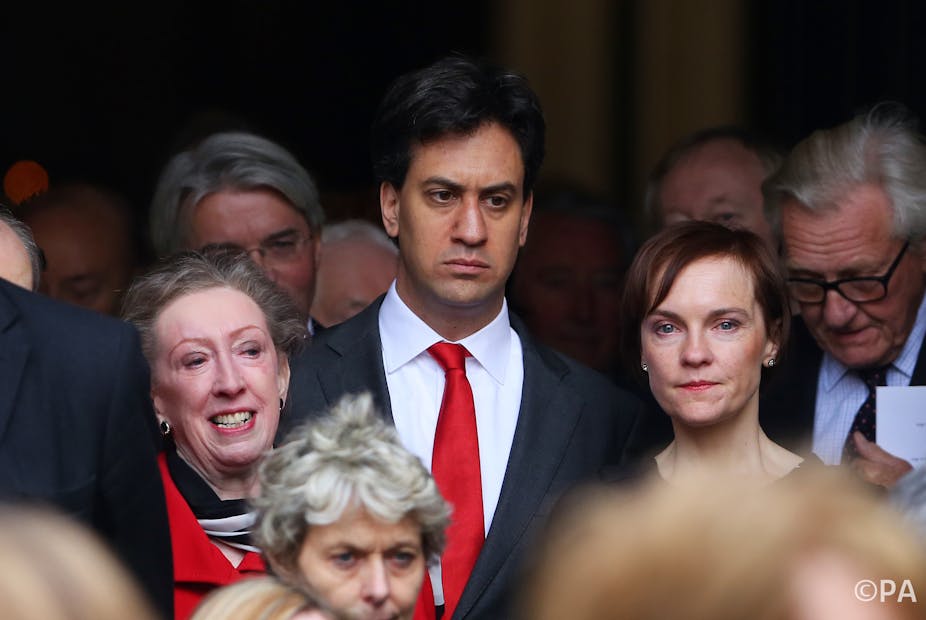Just before Tony Blair became prime minister – what seems a lifetime ago now – several colleagues and I published a research paper looking at the possible scale of rebellion that might face him in government.
In a play on John Major’s off-camera remarks during the struggle to get the Maastricht Bill passed, the paper was entitled Blair’s Bastards. Dismissed by Labour at the time as “academic nonsense”, it turned out to be a remarkably good predictor of who did indeed cause trouble for the whips after 1997. One of the things about backbench rebellion is that it is habitual; those who do it one year then do it the next, with remarkable predictability.
Given that a Labour government next year is at least a serious possibility, some attention is now turning to what we might call Miliband’s Militants – the scale of the problem that would face Ed Miliband’s whips should he enter Number 10 in 2015. Minds were especially focused on the Commons rebellion over the welfare cap. George Eaton, in the New Statesman, said: “The size of the rebellion will be a good indicator of the number of MPs who could be expected to oppose future austerity measures introduced under a Labour government.”
In the event, just 13 Labour MPs voted against their party whip. That sounds like nothing to worry about. Well, not quite. For one thing, there were a lot of Labour MPs who found convenient reasons to be absent. Even more importantly, this is opposition. In government the pressure on them to stick to the party line will increase, but so does the responsibility of knowing that it is your votes, and your party, that is implementing any legislation.
Labour: toil and trouble
The fact is that ever since Labour first came into office in 1924, the issue of social security has been a running sore between the front and back benches of the party. For example, the largest backbench revolt against the very first Labour government in 1924 was over benefits when almost four out of every ten members of the Parliamentary Labour Party voted against MacDonald’s government over the right of strikers to claim unemployment benefit. As a percentage of the PLP, this remains the largest-ever rebellion by Labour backbenchers against their government, larger (in percentage terms) even than the revolts over Iraq.
MacDonald’s second government, between 1929 and 1931 also struggled with the issue of unemployment benefit. The Unemployment Insurance (No 2) Bill, for example, saw repeated rebellions – the largest seeing 32 Labour MPs support an attempt by Jennie Lee to increase the level of benefit paid to the children of the unemployed from two shillings to five shillings a week. There were also significant rebellions over benefits in 1946 and in 1977.
Of the three issues to see the largest rebellions during the 1997 Parliament, two of them were benefits issues. The issue of lone parent benefit contained in the Social Security Bill triggered the first major Government rebellion of the 1997 Parliament. On that occasion 47 MPs voted against their whips, plus abstentions, and four MPs resigned from the Government.
The later Welfare Reform and Pensions Bill triggered a total of 10 separate rebellions, involving a total of 74 MPs. The largest rebellion involved 67 MPs, plus a large number of abstentions. That was the largest revolt against the whip during the 1997 Parliament. The Brown government then saw a rebellion consisting of 30 MPs over the Welfare Reform Bill in 2009 (along with two other smaller rebellions of 26 and 29).
In other words, it is better to see this week’s rebellion not as indicating the scale of any backbench protests against austerity measures introduced under a Labour government, but rather as representing the very minimum number who would do so. Even in opposition, we’ve seen Labour backbench rebellions since 2010 consisting of 30-plus and occasionally 40-plus MPs. They go largely unnoticed because the party is in opposition, but that doesn’t mean they aren’t happening.
Should Labour return to government after the next election, there will be trouble ahead.

